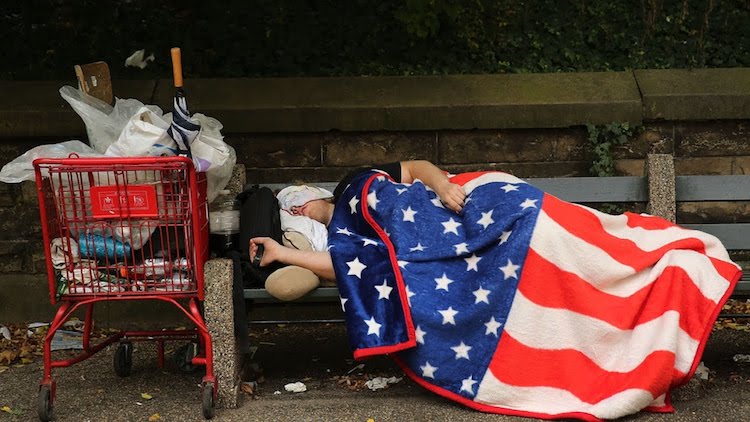
The issue of poverty in America has taken a back seat during this election cycle, sadly not an unusual occurrence in our nation. The conditions affecting the poor is not a seductive subject that attracts an outpouring of attention or concern. It seems no one wants to talk about poor people and the poor seem exhausted by the intermittent focus on their plight. Still, if we do not create a comprehensive plan to tackle poverty, the United States as we know it is doomed. For once and all, we must burst the ‘poverty bubble.’
Throughout the nation there exists pockets of poverty, where the faces are white, black, and brown, and a set of similar conditions exist. If you draw a red circle around these areas you will likely find high rates of joblessness and crime, underperforming schools and underachieving students, lack of decent housing, food deserts and high incidence of chronic illness. These ‘poverty bubbles’ exist across the nation and they can only be pierced if all these issues are taken on in a coordinated and comprehensive way, and not siloed as some exotic cause celebre. We have wasted valuable time with remedies and interventions that treat poverty as an isolated condition. Nothing can be further from the truth.
My observations are based upon my years working as an executive at a large, legacy, and well-endowed not-for-profit organization in New York City with a mission to conquer poverty. What I learned from that experience is that the paternalism of White liberals is counterproductive to uplifting Black and brown people out of poverty. The incestuous nature of the not-for-profit world in its relationship with philanthropic foundations creates a self-perpetuating cycle of repetitive research, self-congratulatory pomposity and self-dealing that sometimes makes Wall Street look tame. During my tenure with the organization I learned that there was nothing more valuable than a ‘needy’ New Yorker for White researchers to salivate over and our Black upper-middle class CEO to feign righteous indignation. It was an anti-poverty freak show with little to show for the amount of time, energy and money expended.
To put poverty in our rear view mirror we must end the siloed approach we take to public problem solving. In my mind the central issue is education. If we cannot provide all Americans with a first-class and quality education, we will always leave millions behind in poverty. There is no use in talking about poverty reduction and economic mobility if we are going to continue to treat education as a separate concern. Education is the connective tissue that will allow us to tackle joblessness, homelessness and the myriad of public health issues that afflict the poor. We can burst the poverty bubble if we are willing to reject the dogma of current thinking on poverty amelioration.
How do we do this? First, foundations have to get their heads out of the sand and connect to grassroots efforts and organizations that actually touch poor people on the ground. For too long, there has been a funding hierarchy, a lot ‘creaming’ in philanthropy where funding is contingent upon the homogeneity (Whiteness) of grantees and the soulless and antiseptic metrics that foundations use to gauge funding worthiness. Once the funding code is cracked, there are organizations that represent Black and brown people that must receive a far larger share of philanthropic support. This includes the nation’s historically Black colleges and universities (HBCUs) that have an unbelievable track record of lifting marginalized people out of poverty. Recently, Rutgers University, the state university of my native New Jersey, received an obscene amount of money to focus on racism and social justice despite the university’s horrid track record on issues of race. If foundations were to immediately shift 25% of their support to Black and brown led community organizations and HBCUs, we would begin to see an immediate return on that investment. The focus must also shift to connecting issues across policy areas, and seeing poverty as a multi-dimensional challenge that can only be tackled by establishing linkages that are non-competitive. For example, at the federal level that means the Department of Education, the Department of Housing and Urban Development (HUD), and the Department of Agriculture working in a symbiotic way to create a holistic portal to economic opportunity and financial stability.
It will require nothing short of a revolution to force a change in how the nation addresses poverty, but it is a revolution worth inciting. We are only digging a deeper grave for America if we continue denying that we haven’t been concerned about the poor because their existence has supported a self-perpetuating industry.
Walter Fields is Executive Editor of NorthStarNews.com.












